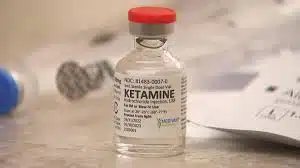Ketamine friend or foe?

The recent news that Matthew Perry’s death was partially caused by his use of recreational ketamine has brought renewed attention to the controversy surrounding this drug. It was first approved by the FDA as an anesthetic in 1970 and later it moved into popular culture and became a club drug used at raves, nightclubs, and music festivals by revelers interested in its dissociative and hallucinogenic properties. In 2019 an intranasal form of ketamine called esketamine was FDA approved for the management of treatment-resistant depression. And now ketamine treatment programs have sprouted up all over the country and researchers are testing it to see if it might have additional uses in the treatment of addictive disorders.
The dual nature of ketamine as both a substance of abuse and a treatment for depression and addiction is confusing for many people. On one hand, ketamine has shown effectiveness in rapidly relieving depressive symptoms. However, its potential for addiction and misuse has also raised concerns. Ketamine’s hallucinogenic effects and impact on various receptor sites in the brain make it a topic of debate in the medical community. The drug’s use in private ketamine clinics has also raised issues due to minimal regulation and oversight, with concerns about potential harm to patients when provided in ways that do not mirror the research protocols that were approved by the FDA. Additionally, the cost of treatment remains a significant barrier for many.
But what I think is the hardest issue to solve is the confusion these various points of view create for average Americans. Ketamine is approved for use by our government, for treatment, so people feel it should be safe to use. They get it from their doctors, so they feel comfortable getting it from dealers and taking it on their own. However, to be safe, it needs to be provided under the guidance and supervision of medical professionals. The doses taken medically tend to be much lower than what people take recreationally, and reputable clinics provide psychotherapists who help the patient process and integrate the psychedelic experience. Taking this medication on your own at high doses can be dangerous and, sadly what we have just witnessed, can even end in death. We mourn the loss of Matthew Perry. His death has highlighted the need for careful consideration of the benefits and risks associated with ketamine use in both medical and non-medical contexts.